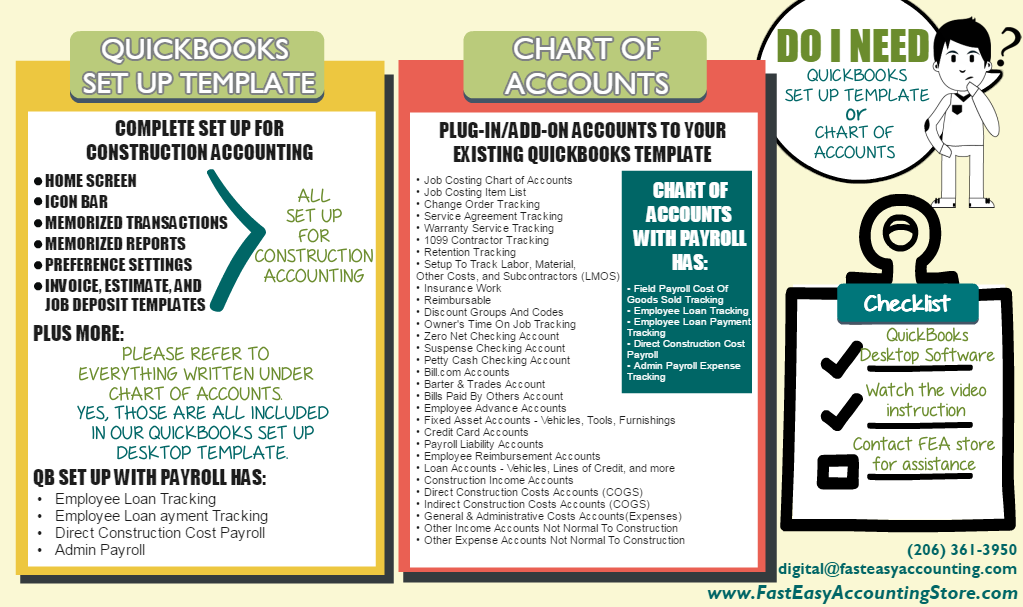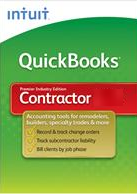
When hiring a construction contractor, clients often have a clear set of expectations that significantly influence their decisions. These expectations encompass many factors, including the quality of artistry, communication skills, adherence to timelines, and budget management.
Picture a homeowner named Sarah. Excited and anxious, she embarked on renovating her old farmhouse. She understood that choosing the right contractor was crucial. After researching and meeting various candidates, she selected Jack, whose impressive portfolio and reputation for reliability reassured her. Throughout the project, Jack kept his promises, communicated regularly, and prioritized quality, which helped build Sarah's trust.
As the renovations progressed, Jack's transparency about costs and proactive problem-solving skills were evident when unexpected challenges arose. He treated Sarah's home respectfully, maintained a clean worksite, and ensured everything was done meticulously. By the end of the project, Sarah had a beautifully renovated house and a partnership based on trust and collaboration, making the entire experience enjoyable and fulfilling.
Read More
Topics:
Give Your Customers And Clients What They Want,
Profit and Growth Strategies For Contractors,
High Profit Repeat Construction Clients,
Clients or Customers,
Clients,
Boost Construction Profitability

Times were tough, so Remodeler John decided to lower prices below those of his competitors. He promoted a charge-out rate 20% below the industry average, explaining that his overheads were lower than those of larger companies.
The turning point came after advice from his mentor. "You're selling yourself short, John," said the mentor. "With your qualifications and experience, you should charge at least as much as other businesses – if not more. I understand your marketing strategy, but I don't think clients see it that way. They are more likely to interpret lower costs as lower value and quality. In your industry, confidence goes a long way, so you shouldn't be afraid of marketing yourself at a price that reflects your expertise and experience."
Then came the call from his accountant. "Aren't the sales figures great?" said John, getting his bit in first. "Yes," said the accountant, "impressive sales indeed. That's the good news. The bad news is that the business has actually lost money over the last quarter."
This was how John learned that trading for sales and trading for profit could be different. Chasing sales revenue is fine, provided your prices give you a sustainable profit. John hadn't checked his costs for some time, so the unwelcome news from the accountant came as a shock.
Read More
Topics:
Growth Coach,
Bookkeeping For Remodel Contractors,
Remodel Contractor Coach,
Profit and Growth Strategies For Contractors,
High Profit Repeat Construction Clients,
Bookkeeping Services,
Pricing Jobs,
Trading for Profit,
Trading for Sales
Think about the last time you gave or received feedback. Did it inspire growth and improvement or leave someone feeling deflated? When done right, constructive feedback is a powerful tool for driving success. But it's a fine line – getting it wrong can do more harm than good.
For business owners, managers, and team leaders, effectively giving and receiving constructive feedback isn't just a nice skill; it's a necessity. Feedback shapes stronger teams, builds trust, and moves companies forward.
In the construction industry, where projects are often complex and involve numerous stakeholders, giving and receiving constructive criticism is essential for success. Feedback can significantly impact safety, quality, and project timelines, making it crucial to foster a culture where constructive feedback is the norm rather than the exception.
Read More
Topics:
Construction Productivity,
Construction Workplace,
Construction Feedback,
Constructive Criticism in Construction,
Positive Feedback,
Constructive Criticism
Visibility is essential for your handyman or contracting business for several key reasons. Effective marketing helps your company stand out in a competitive market, and promoting your services can help you reach a wider audience and become known in your community.
Potential customers are more likely to hire someone they have heard about or seen advertised. This credibility is crucial for a service-based business like yours, where customers rely on reputation. Sharing content like the project "before and after," tips, and how-to guides can demonstrate your expertise and help you connect with your target audience.
Many construction businesses are vying for the same residents and homeowners, but active marketing helps you stay relevant, ensuring your company remains top-of-mind for potential clients.
Read More
Topics:
Marketing Ideas For Contractors That Work,
Marketing Tracking,
Construction Marketing,
Marketing,
Systems And Processes,
handyman marketing,
Construction Systems And Processes

Being a construction manager and a business owner requires a unique blend of skills and attributes essential for effectively leading a crew. Leadership is at the forefront of this role, as a construction manager must inspire and motivate their team to achieve project goals while maintaining safety and quality standards. This involves clear communication, conflict resolution, and a collaborative team environment.
Responsibility is another key element. A construction manager oversees the site's day-to-day operations and bears the weight of financial and legal obligations associated with the business. This includes managing budgets, ensuring compliance with regulations, and maintaining client relationships. Making informed decisions under pressure is crucial, as any misstep can have significant consequences.
Handling a problematic construction contractor on a job site can also add to your work challenges, but adopting a proactive and positive approach can help you manage the situation effectively.
Read More
Topics:
Systems And Processes,
Winning Teams,
Project Management,
Project Management For Construction,
Construction Productivity,
Construction Systems And Processes,
Production,
Construction Team
In the bidding process, contractors prepare detailed proposals that outline their approach, costs, and timelines for a project. This involves thoroughly understanding the project specifications, assessing the site conditions, and determining the resources needed. Competitive bidding requires a balance between offering a competitive price and ensuring the proposal reflects the quality and reliability of the work.
Negotiation plays a key role after bids are submitted. You must communicate effectively with clients and address any questions or concerns. Flexibility can be crucial during talks; you may need to adjust your terms or pricing to meet client budgets without compromising quality.
Read More
Topics:
Project Bidding Sites,
Systems And Processes,
Estimating Tips And Tricks,
Construction Systems And Processes,
Construction Business Negotiations,
Negotiating Contracts,
Bidding in Construction
In a rapidly evolving digital landscape, it's easy for construction business owners to overlook the power of offline marketing. However, effective offline strategies remain crucial in building relationships, enhancing brand visibility, and generating leads. In this digital age, offline marketing often creates more meaningful connections than digital efforts. Whether you're a small contractor or a more prominent construction firm, understanding and implementing these strategies can help you establish a strong community presence and a loyal customer base.
As a construction professional, you hold the key to unlocking the potential of offline marketing. From networking events and local advertising to engaging community initiatives, these strategies empower you to create meaningful connections that digital efforts often cannot.
Read More
Topics:
Marketing Ideas For Contractors That Work,
Construction Marketing,
Systems And Processes,
Contractor Marketing,
handyman marketing,
offline marketing for contractors,
Construction Systems And Processes

Understanding and managing your gross profit margin is crucial to ensuring the sustainability and profitability of your business as a construction contractor. This key financial metric not only reflects your company's financial health but also helps guide your pricing strategies, project management decisions, and overall strategic planning.
Profit is the money left in your business after all your expenses have been paid. An income statement (also referred to as a profit and loss report) reveals what profit your construction company made last month or last quarter. Your profits are detailed in two figures, namely:
- Gross profit is what's left from sales after deducting the costs of goods sold or services provided.
- Net profit is left from gross profit after operating expenses (your business overheads) are deducted.
Note that net profit isn't the final 'bottom line' profit until all taxes have been paid.
Gaining more significant profits depends on accomplishing all the little things better rather than making one huge change.
Read More
Topics:
Accountant,
Ten Minutes A Day To Increased Construction Profit,
Construction Profits,
Profit And Loss Reports,
Profit and Growth Strategies For Contractors,
Systems And Processes,
Boost Construction Profitability,
Gross Profit Margin
Navigating the world of finances can sometimes feel like trying to build a house without a blueprint. Between managing budgets, keeping track of expenses, and ensuring you're compliant with tax regulations, it's easy to feel overwhelmed. That's where your financial dream team comes in!
Having the right people by your side can make all the difference in staying organized and achieving your business goals. In this blog post, we'll chat about the key players you need on your financial team, what each role brings to the table, and how to find experts who truly understand the ins and outs of the construction industry.
Whether you're a seasoned pro or just getting started, building a reliable financial team will be a game-changer in achieving your financial goals and securing the future of your business.
Read More
Topics:
Accountant,
CPA Vs Construction Accountant,
Bookkeeper Vs. Accountant,
Accountant Vs. C.P.A.,
Systems And Processes,
Winning Teams,
Construction Systems And Processes
If you've been a long-time reader or a contracting company owner, you've probably heard about "Cost of Goods Sold" (COGS). But what does it really mean, and why is it crucial for your construction business's success? Understanding COGS isn't just about accounting—it's about making smart decisions for profitability, pricing, and more.
1. What is the Cost of Goods Sold (COGS)?
COGS represents the direct costs of creating the products/services your business sells/provides. These include materials, labor hours, and even manufacturing overheads. Any expense that contributes directly to a product's creation is included in COGS.
COGS provides critical insights into your business's efficiency and profitability. It's a fundamental metric showing how much you spend to produce inventory relative to your sales.
Read More
Topics:
Systems And Processes,
Cost of Goods Sold Vs. Expense,
Construction Systems And Processes,
COGS,
Contractor Chart of Accounts,
QuickBooks Chart of Accounts










































